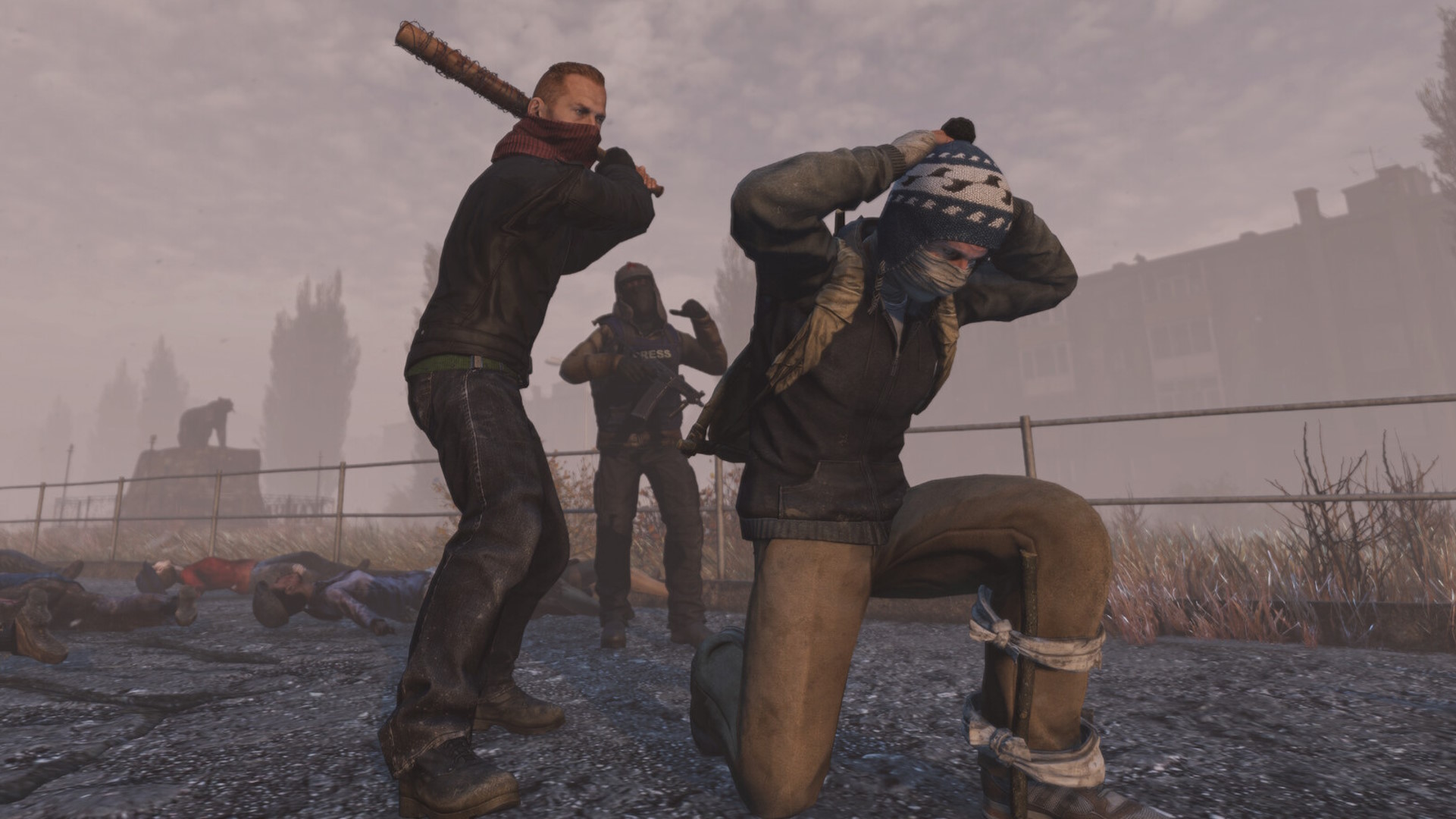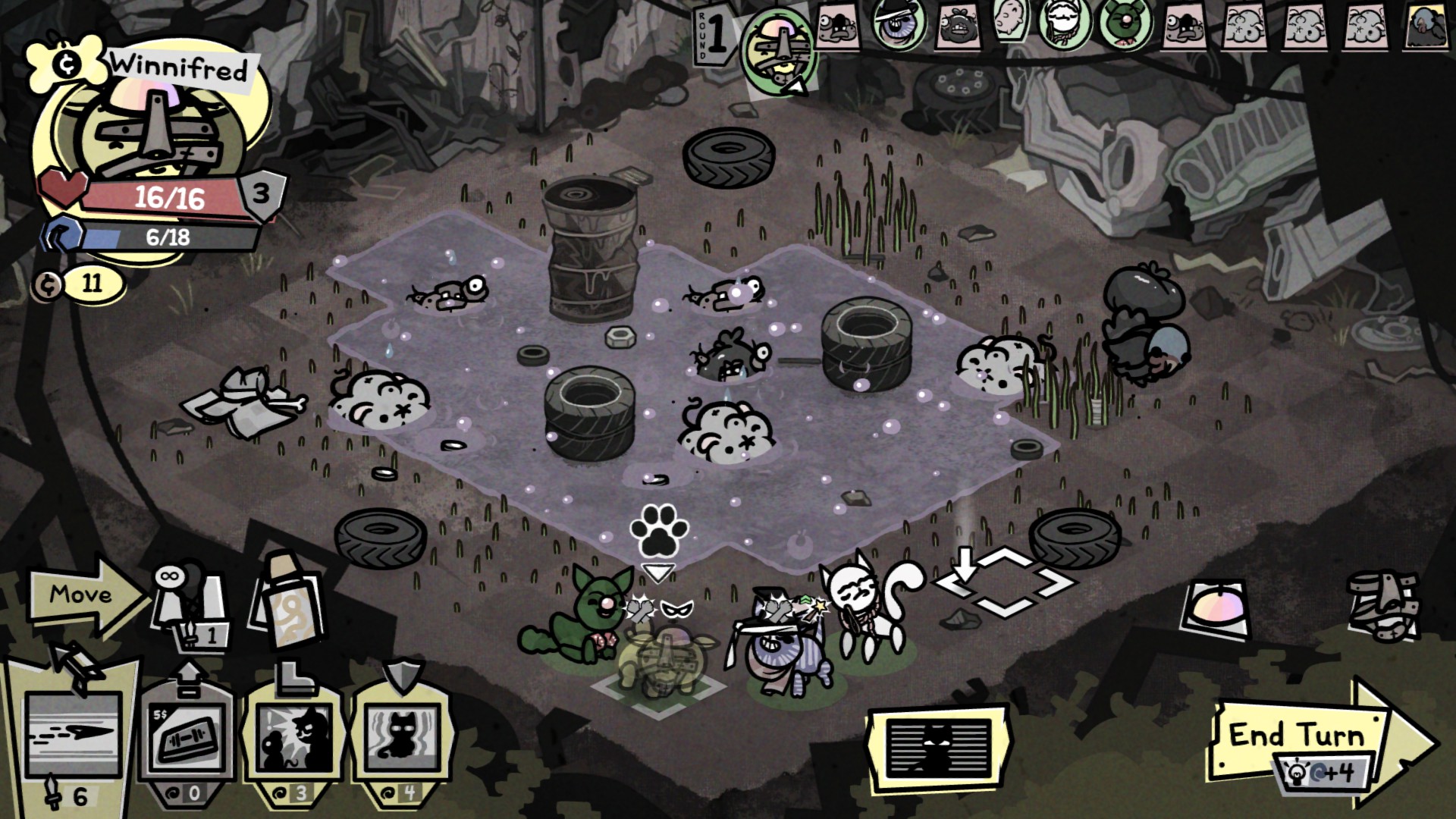Former DayZ lead thinks survival games should let players tinker with every variable: 'Here's the keys. Have fun'
If a game's going to last, it should let players fiddle with everything.

Keep up to date with the most important stories and the best deals, as picked by the PC Gamer team.
You are now subscribed
Your newsletter sign-up was successful
Want to add more newsletters?

Every Friday
GamesRadar+
Your weekly update on everything you could ever want to know about the games you already love, games we know you're going to love in the near future, and tales from the communities that surround them.

Every Thursday
GTA 6 O'clock
Our special GTA 6 newsletter, with breaking news, insider info, and rumor analysis from the award-winning GTA 6 O'clock experts.

Every Friday
Knowledge
From the creators of Edge: A weekly videogame industry newsletter with analysis from expert writers, guidance from professionals, and insight into what's on the horizon.

Every Thursday
The Setup
Hardware nerds unite, sign up to our free tech newsletter for a weekly digest of the hottest new tech, the latest gadgets on the test bench, and much more.

Every Wednesday
Switch 2 Spotlight
Sign up to our new Switch 2 newsletter, where we bring you the latest talking points on Nintendo's new console each week, bring you up to date on the news, and recommend what games to play.

Every Saturday
The Watchlist
Subscribe for a weekly digest of the movie and TV news that matters, direct to your inbox. From first-look trailers, interviews, reviews and explainers, we've got you covered.

Once a month
SFX
Get sneak previews, exclusive competitions and details of special events each month!
Brian Hicks, former DayZ creative director, co-creator of the whole battle royale genre, and current creative director of 775 Interactive, wants players to have more control over their games.
Chatting to us about his long career in survival games—including the time DayZ's creators got obsessed with a little educational game before becoming embroiled in a contentious presidential campaign—Hicks brought up his time working with Hinterland on Blackfrost: The Long Dark 2.
"When I got to Hinterland, it was 'OK, I need to pay attention to what Raph [van Lierop, CEO and creative director] can tell me about the Long Dark playerbase.' Because even though I am a Long Dark player, I'm just one, and I need to know at a high level what the players of that title really gravitate towards.
"And it all boils down to something that I now feel very, very passionately about. And it's essentially, I guess you could call it soft modding. And that is exposing as many of the levers and switches that developers and designers use, to tweak the difficulty settings and the vibe of the game. Exposing all of that to the player in a custom difficulty setting. Because why not?"
In most survival games, which typically aren't competitive, exposing everything to players doesn't really have a downside. "So when it came to this soft modding thing," Hicks adds, "with The Long Dark 2, it was, 'Let's expand this.'"
Hicks references fellow survival game 7 Days to Die as another example of this philosophy. "The way they expose damn near every single variable in that game on the XML side to the players—why the fuck not? If you're essentially saying, 'I built this world, these systems, here you go, tell your story, make your environment,' then why gate variables behind hard modding? If it's there already, expose as much as possible."
The terms soft modding and hard modding already exist in the hardware tinkering world, to differentiate between physical modifications of, say, consoles and using software to modify them. But here, in videogame terms, Hicks is talking about flinging the doors open to let players dig into a game—essentially giving players the kind of control over their games as the devs who created them have.
Keep up to date with the most important stories and the best deals, as picked by the PC Gamer team.
And plenty of games already do this. Beyond survival games, one of my favourites is Crusader Kings 3, which allows you to dramatically change the game even if the extent of your modding ability is editing text files. But even more games are closed off—preserving the developer's vision, but at the cost of player freedom. And yeah, it would be wonderful to see that come to an end.
But there's a risk, in that these games could lose their identity. Take Minecraft. What even is Minecraft today? It's more of a platform than a game now. "I think, unfortunately, Minecraft, to a degree, is a victim of its own success," says Hicks. "It blew up to insane levels. And now the consumer expectation of what Minecraft is, it’s so disparately spread. There's Minecraft stuff out there that I don't know anything about, and I worked on the publishing side of a Minecraft game."
That said, I doubt many developers would worry about their game echoing Minecraft's journey to dominance. It might no longer have a clear identity, but that is perhaps a small price to pay for conquering the world.

👉Check out our list of guides👈
1. Best gaming laptop: Razer Blade 16
2. Best gaming PC: HP Omen 35L
3. Best handheld gaming PC: Lenovo Legion Go S SteamOS ed.
4. Best mini PC: Minisforum AtomMan G7 PT
5. Best VR headset: Meta Quest 3

Fraser is the UK online editor and has actually met The Internet in person. With over a decade of experience, he's been around the block a few times, serving as a freelancer, news editor and prolific reviewer. Strategy games have been a 30-year-long obsession, from tiny RTSs to sprawling political sims, and he never turns down the chance to rave about Total War or Crusader Kings. He's also been known to set up shop in the latest MMO and likes to wind down with an endlessly deep, systemic RPG. These days, when he's not editing, he can usually be found writing features that are 1,000 words too long or talking about his dog.
- Jeremy PeelContributor
You must confirm your public display name before commenting
Please logout and then login again, you will then be prompted to enter your display name.

